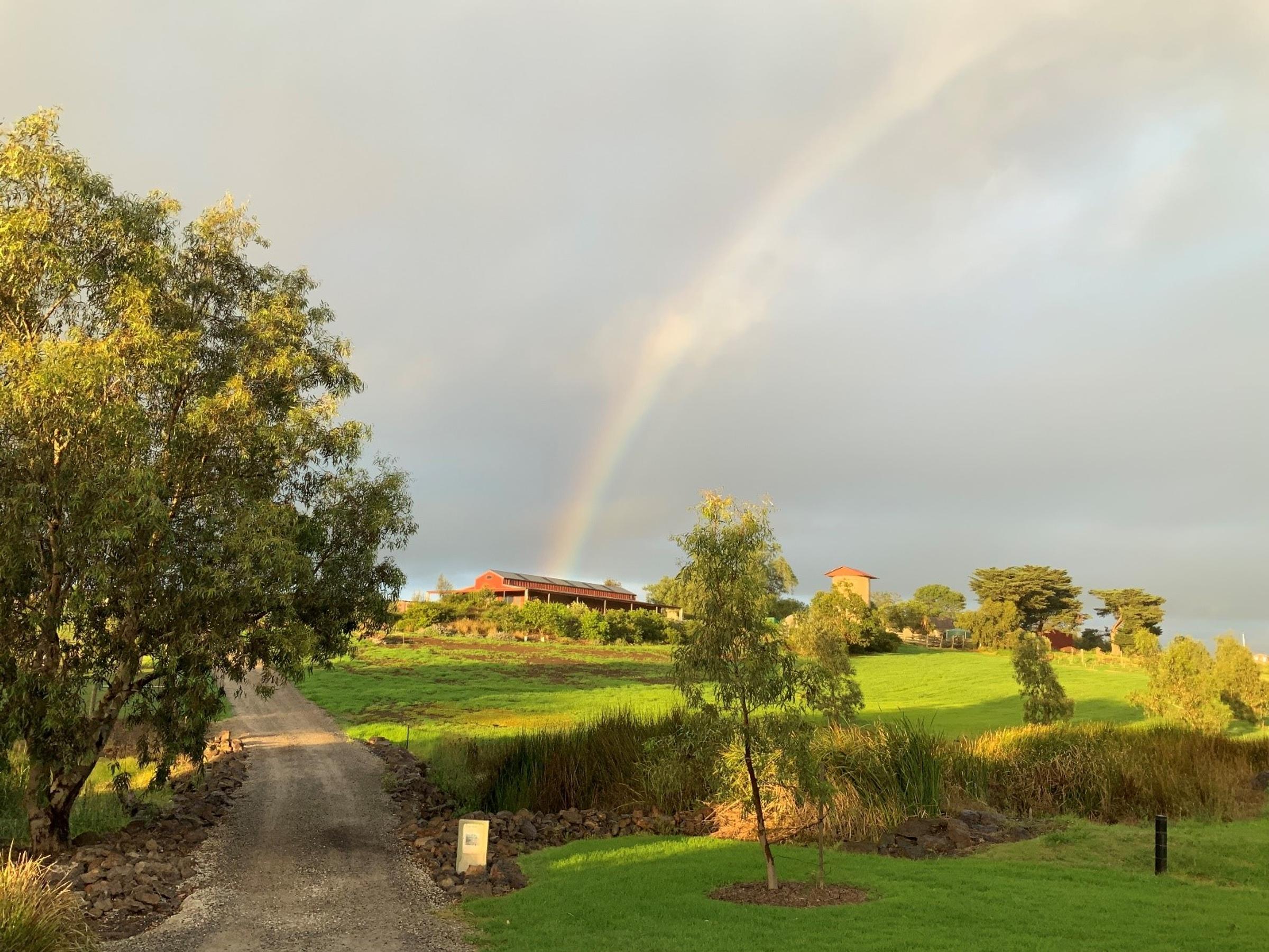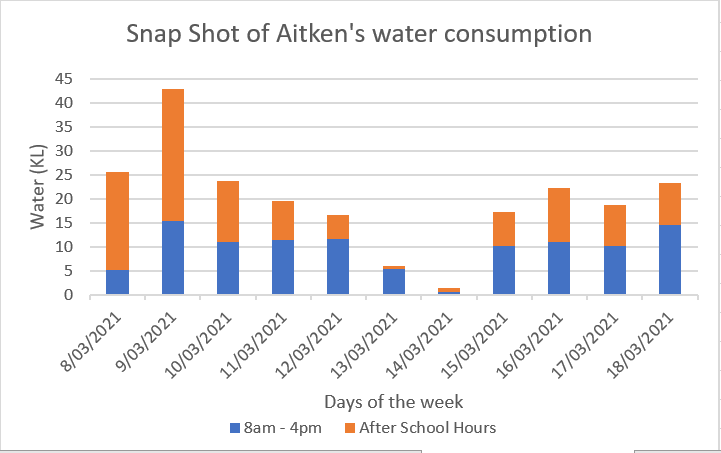
Sustainability & Agriculture
Aitken College Water Audit Report
Earlier this year students at Aitken College undertook a comprehensive water audit of the school. The audit involved monitoring Aitken’s water consumption, recording the number of taps, drinking fountains, toilets, urinals, water tanks, etc. The data collected will be used to:
- Assist Aitken College renew its water module (RSS)
- Raise awareness and hopefully change behaviour/habitats towards water conservation and
- Improve Aitken College’s water management in the future.
Below is a summary of the data obtained from the audit along with suggested recommendations.
| Item | Quantity | Type | Water source |
| Toilets | 79 | 100% dual flush | Potable |
| Urinals | 10 | 80% Sensor 20% Timed | Potable |
| Taps | 185 | 60% - timed push 40% - Twist | Potable |
| Drinking fountains | 18 | 100% Push handle | Potable |
| Water tanks | 12 – various sizes and locations | 137000L Total Capacity | |
Other water items: Urns, Dishwasher, Washing Machines | 16 | Potable |
| Water Usage | Kilolitres (KL) |
| March Snapshot (8/03/21 - 18/03/21) | 4.58KL per student |
| May snapshot (17/05/21 - 21/05/21) | 2.03KL per student |
| Water usage to date (31/05/21) | 3160KL – 4.33KL per student |
| Benchmark (as per Sustainability Victoria) | 4.00KL per student |
Current practices at Aitken College to conserve water.
- Regular maintenance of amenities: no leaks were found in any of the amenities.
- Mulch on garden beds.
- Use of wise water plants – natives suited to the area.
- Automatic irrigation drip system
- Water harvesting – water collected in tanks.
- Landscaping designed to slow stormwater – swales, Brodie's creek, wetlands pond.
- Fitted flow controllers.
- Water monitoring system – SWEP.
Recommendations
- Install signage about water conservation practices in staffroom, toilets, bathrooms, etc.
- Check flow rates of taps to make sure they are in line with best practice.
- Conduct a curriculum audit with Heads of Faculty to determine water activities already conducted in the classroom and potentially look to have staff and students participate in local waterways projects/activities – construction of pond in Wildlife corridor.
- Bottle refill stations
- Timers on hot water systems and lower temperatures and check water efficiency ratings of appliances.
- Investigate alternative water saving systems.
- Speak to relevant Heads of Faculty to see if we have rinse and wash protocols in place for Food Studies, Science, Art, etc.
Mr Dwayne Ganci
Sustainability Coordinator


